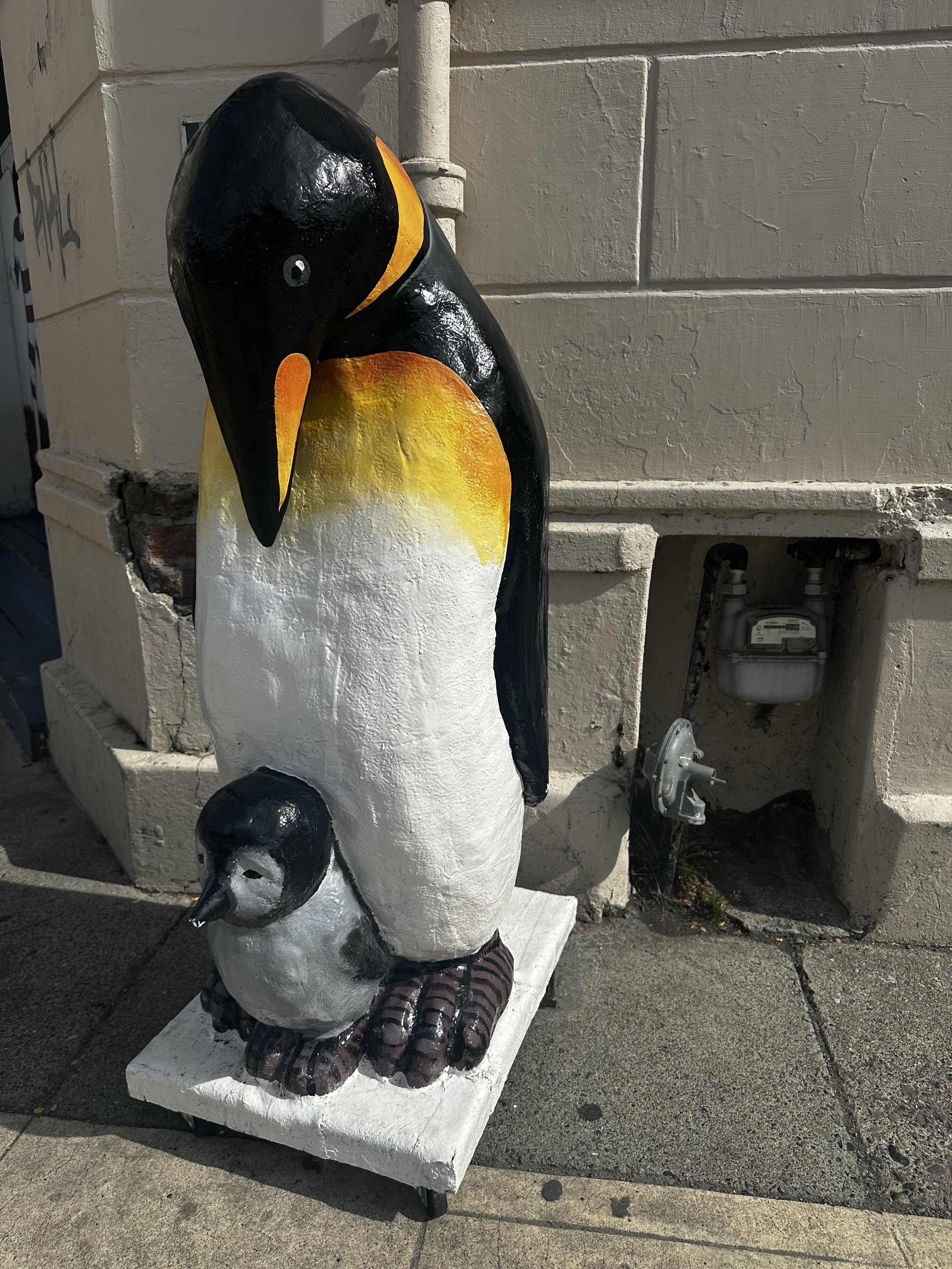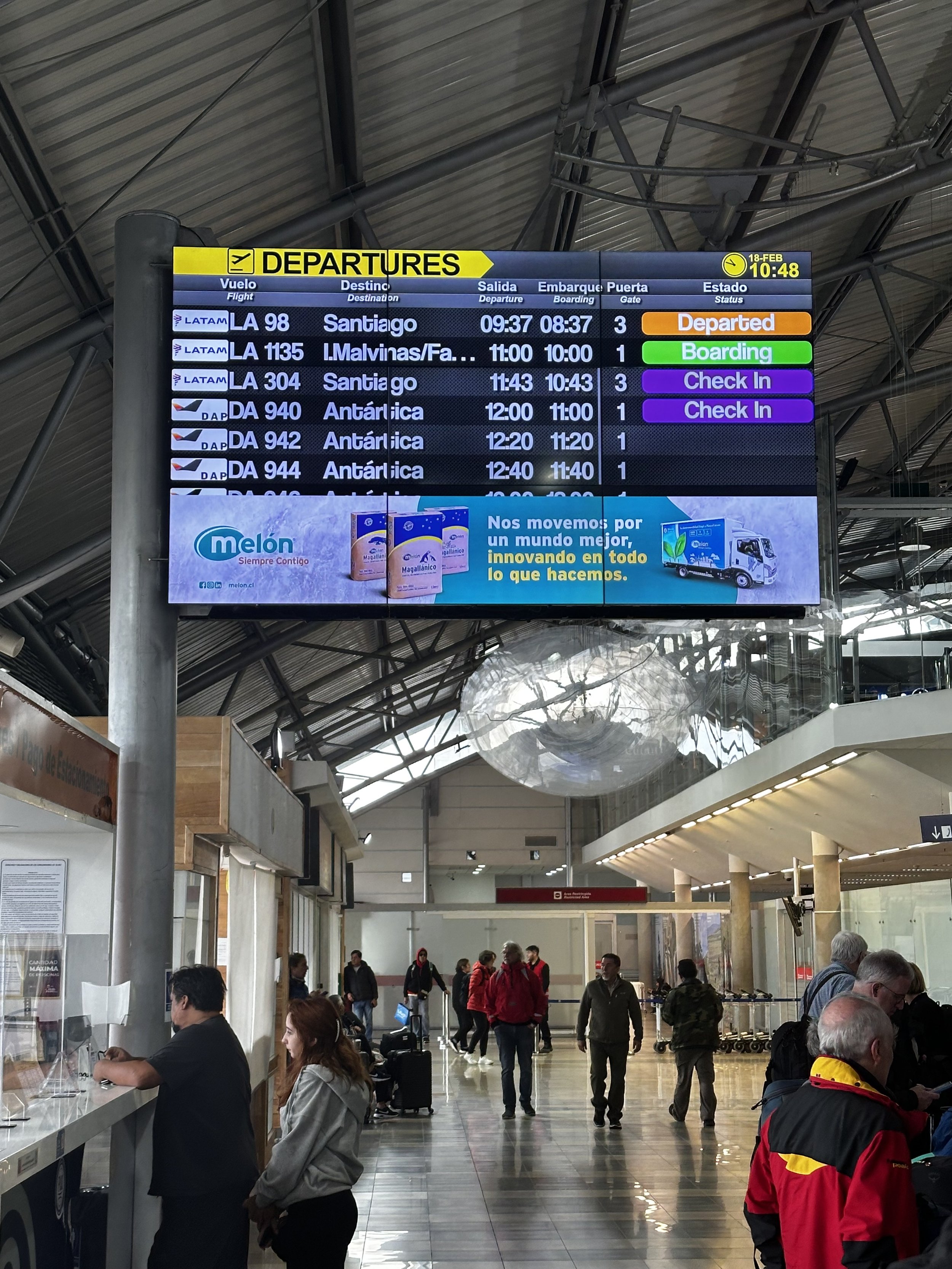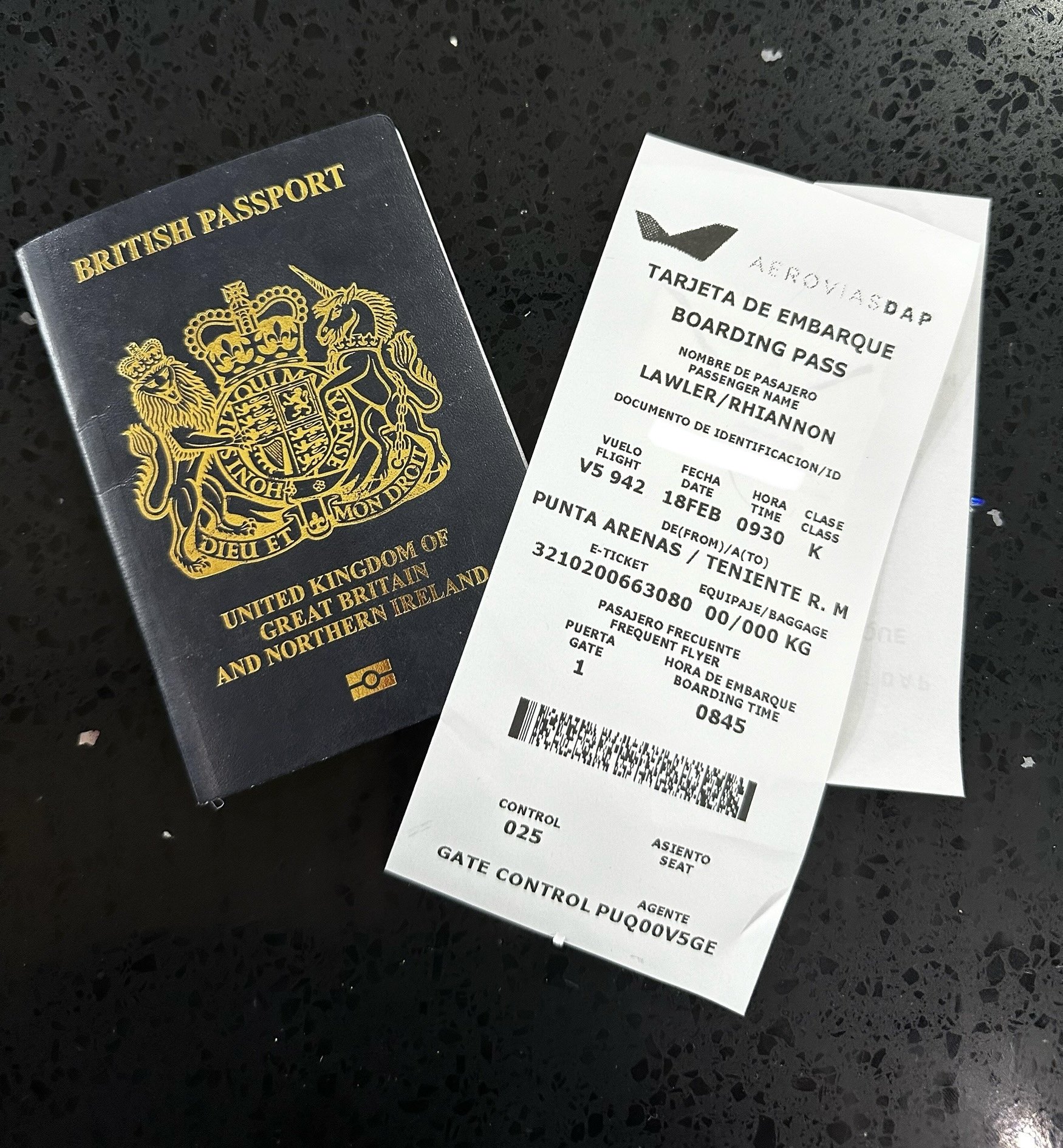Travelling to The White Continent
Time to Go
I know you shouldn’t wish your life away, but the anticipation of waiting for this trip for almost 2 years, definitely had me impatiently waiting to embark on this adventure of a lifetime.
Soon enough, my (lack of) patience was rewarded and it was time to begin the long journey to Antarctica.
The route saw me travelling from London to Santiago Chile, and from there onto Punta Arenas before the final chartered flight to King George Island to board the Aurora Expeditions ship, Sylvia Earle.
The journey wasn’t without its challenges. As I mentioned in my first blog, the luggage limits were strict and this had me panicking, buying new luggage and repacking numerous times!
My camera kit all ready to go, along with a penguin from my niece and nephew!
In the end, kit wise I travelled with my Canon EOS R5, Canon RF 100-500mm f/4.5-7.1 L IS USM Lens, Canon RF 14-35mm f/4L IS USM Lens, Canon RF 24-105mm f/4L IS USM Lens, Kase Revolution Magnetic Circular Filters, Peak Design Carbon Travel Tripod packed away in my Shimoda Explore v2 30L. I also hired a second camera body from Lenses for Hire to give me the flexibility of having a telephoto lens and wide lens on two bodies, ready to shoot at a moment’s notice. I also hired a Canon Extender RF 2x to capture some detailed shots of the wildlife.
False Starts
Little did we know luggage limits would be the least of our challenges! On arrival at Punta Arenas, we learned the flight to King George Island wasn’t just something to take for granted - the gravel landing strip at Bellingshausen army base required very specific landing conditions for wind speed and cloud cover. Unfortunately, we did suffer at the hands of the weather, and our scheduled departure was delayed.
Would this penguin in Punta Arenas be the closest I would get to penguins on this trip?!
The statue of Luis Pardo in Punta Arenas, which is often mistaken for Shackleton, teasing us with the directions to Antarctia.
Needless to say, our extra day in Punta Arenas was met with some disappointment, especially as many of the group became weather experts predicting we may not have a weather window in the foreseeable!
Aurora Expeditions and the workshop leaders (Nigel Danson, Mads Peter Iverson, James Popsys, Jeroen Van Nieuwenhove, Rick Bebbington, Rachel Bigsby, Adam Gibbs and Dani Connor) did their best to keep spirits high and the group entertained with a guided tour of Punta Arenas, photography presentations to help us ahead of the trip, and impromptu photography of sea birds along the coastline to hone our skills.
Fortunately, we received news the next day at breakfast there appeared to be a small weather window and so our two chartered flights would make the journey to Bellingshausen Army base on King George Island. The anticipation and excitement from everyone was electric!
Even being the optimist that I am, I tried to contain my excitement until I set foot on the ship!
Departure Board at Punta Arenas Airport showing our much-anticipated flight to Antarctica
A very special boarding pass for the long-awaited flight!
A hint of what’s to come…
For the 2-hour Antarctic Airways flight, I had my nose pressed against the window of the plane to see the first glimmer of what lay ahead. Soon enough icebergs came into view, along with an aerial glimpse of the Silvia Earle anchored at sea, ready to welcome us.
Soon after disembarking the flight, we got a hint of what was to come. A small colony of Gentoo penguins greeted us as we kitted ourselves out with muck boots and life jackets on the shore, before taking our zodiac boat to the ship.
Protecting Antarctica
Onboard the ship, after settling into our beautiful cabins we were welcomed with our mandatory safety and IAATO briefings regarding the incredibly strict, but necessary, measures that are in place to protect this amazing place and the wildlife we would encounter.
This included biodiversity checks that saw us vacuuming all our outerwear and bags, unless brand new, to remove any foreign contaminants. and before and after every landing we would disinfect our muck boots and tripod feet.
There were strictly no objects to be placed on the ground other than our feet and tripod feet, and these were disinfected everytime we stepped on and off of the ship. This meant no bags or clothing to be placed down and no kneeling or laying on the ground. Even with all these measures in place, unfortunately, avian flu has reached Antarctica, so you can see just how important these measures are to minimise our impact on this fragile ecosystem.
In addition, there are obviously strict rules in place regarding the distance you need to be from wildlife, and sticking to the trails that the expedition team so carefully mapped out for us for each and every landing we made.
Vacuuming my Shimoda backpack to remove any foreign contaminants
Map showing the Sylvia Earle ship at the beginning of our Antarctic Expedition!
The expedition begins
Finally, we were introduced to our amazing Aurora Expeditions Team of 20 experts who would educate and guide us on conservation, oceanography, ornithology, marine biology, cetaceans, geology, glaciology, history, and medicine.
Alongside the expeditions team was the rest of the ship’s fantastic crew (85 of them) who were responsible for everything from keeping the ship running to making cocktails at the bar! We were looked after incredibly well on this stunning ship.
And so we were off, that evening the ship sailed across the Bransfield Strait, with a gentle swell to rock us to sleep (well, in actual fact most of us slept terribly as we found our sea legs, and were filled with adrenaline for the rest of the trip!).
The beautiful library and lounge on the Aurora Expeditions Ship the Sylvia Earle.
Plenty of space to enjoy a coffee and warm up after our zodiac trips, or to edit some of the thousands of photos I took.
Our spacious and luxurious cabins that would be our home during the expedition.
We didn’t get much of a chance to use the jacuzzi’s on deck as there was always a photo opportunity, but for those of us that did - what an experience!








